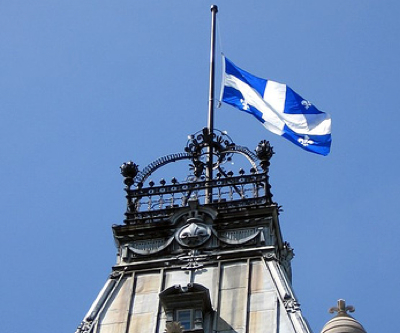Quebec is Canada’s worst region for oil investment; Alberta, the world’s best

On the strength of its petroleum reserves, Alberta remains the most attractive province for oil and gas investment in Canada, finds the Fraser Institute’s annual Global Petroleum Survey.
Based on responses from petroleum executives and managers, this year’s survey ranks 156 jurisdictions worldwide on their relative attractiveness for investment. Barriers to investment include high taxes, costly regulatory obligations and uncertainty over environmental regulations.
“Alberta’s wealth of petroleum reserves continue to attract investment, which creates jobs for scores of Canadians,” said Kenneth Green, senior director of the Fraser Institute’s Centre for Natural Resources.
The survey considers both the input from respondents and the oil and gas reserves (or lack thereof) of each jurisdiction to determine a ranking. Of the 27 jurisdictions with large petroleum reserves, Texas tops the list, followed by Alberta, Norway-North Sea, the United Arab Emirates and Qatar.
Of the 44 jurisdictions with medium-sized reserves, Oklahoma is number one while Newfoundland & Labrador ranks 15th and British Columbia ranks 19th.
The remaining 69 jurisdictions, which have relatively small proven oil and gas reserves, include the other seven ranked Canadian jurisdictions. Mississippi tops the list followed by Saskatchewan and Manitoba.
Additionally, the survey features an alternate ranking format, which ignores proven oil and gas reserves and focuses solely on survey responses. In this format, Saskatchewan ranks first in Canada (and third out of 156 jurisdictions worldwide). Manitoba ranks second in Canada (and fifth globally), followed by Alberta (16th globally).
On the other end of the spectrum, Quebec presents the greatest barriers to oil and gas investment in Canada.
Although Quebec’s overall rank improved slightly from 141st (of 157) in 2013 to 133rd (of 156) in 2014, it’s still clearly regarded as unattractive. Survey respondents point to Quebec’s foot-dragging during authorization and permit processes.
“Quebec continues to sour petroleum investment by delaying authorization for development, to the detriment of many Quebecers who could be working in the resource industries,” Green said.
British Columbia, meanwhile, dropped from 47th (of 157) in 2013 to 62nd (of 156) this year. Survey respondents expressed concern over B.C. tax policies, environmental regulations, and uncertainty around regulatory enforcement.
“Once again, taxes and regulatory uncertainty drive British Columbia’s relatively poor standing in the eyes of oil and gas investors,” Green said.
Finally, Nova Scotia dropped furthest in the rankings, falling 31 spots from 30th (of 157) in 2013 to 61st (of 156) in 2014. Contributing factors in this decline include disputed land claims, and regulatory duplication and inconsistencies.
Globally, among jurisdictions with the largest proven reserves, Venezuela, Iran, four Russian regions, Iraq and Egypt are the least attractive to investment. Taking reserves out of the equation, the least attractive jurisdictions for investment in the world (starting with the worst) are Venezuela, Bolivia, Ecuador, Iran and Russia-Eastern Siberia.
“In Venezuela, flagrant abuse of the decision-making processes and delinquency in payment for delivered crude were among the factors deterring petroleum investment in the country,” Green said.
The Global Petroleum Survey is administered each year to petroleum industry executives to help measure and rank the barriers to investment of oil- and gas-producing regions. A total of 710 respondents representing 563 companies completed the survey questionnaire this year, providing sufficient data to evaluate 156 jurisdictions.
{{ commodity.name }}
{{ post.title }}
{{ post.date }}




Comments